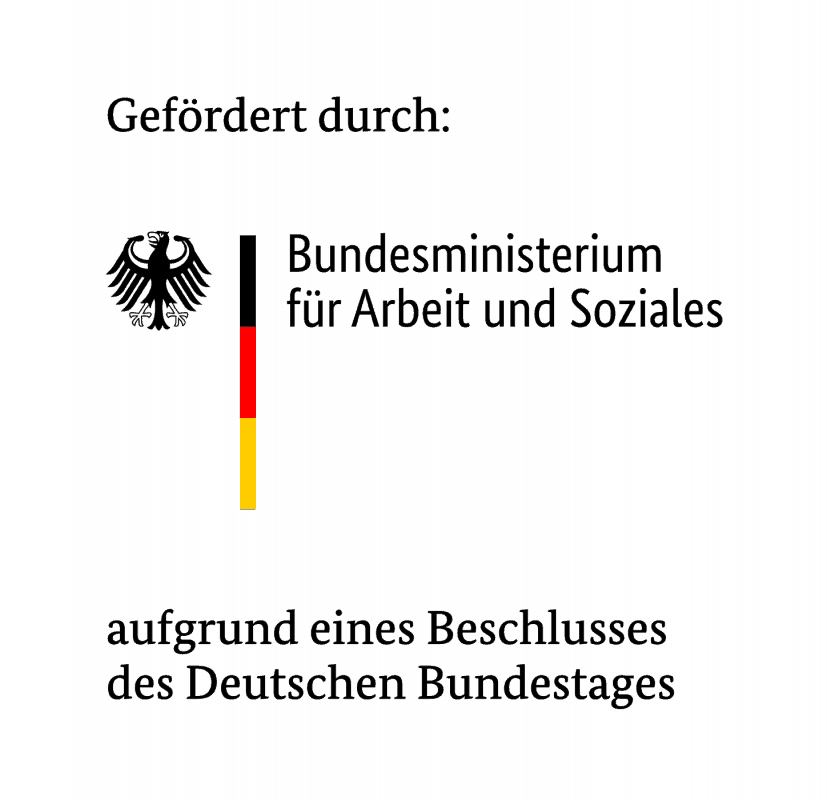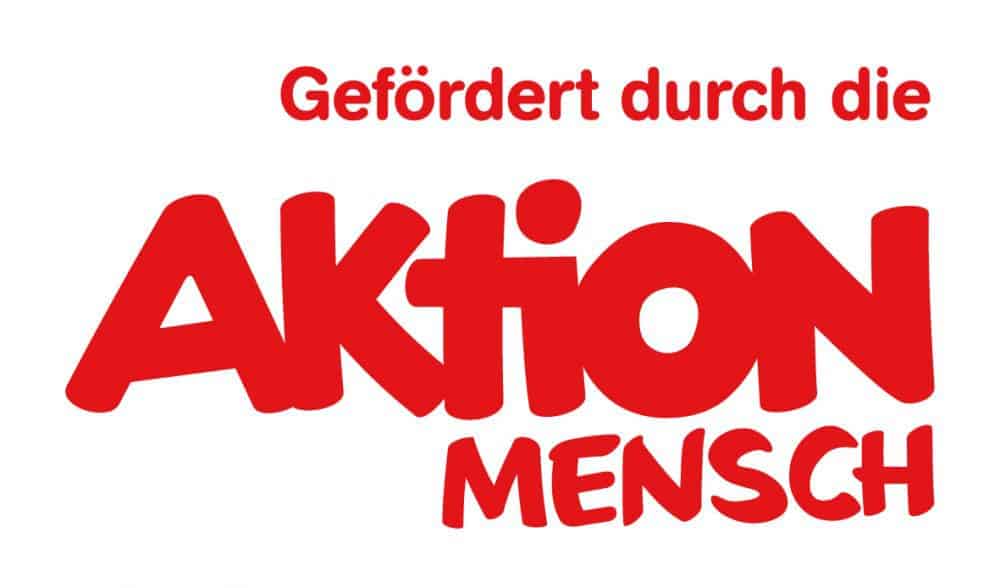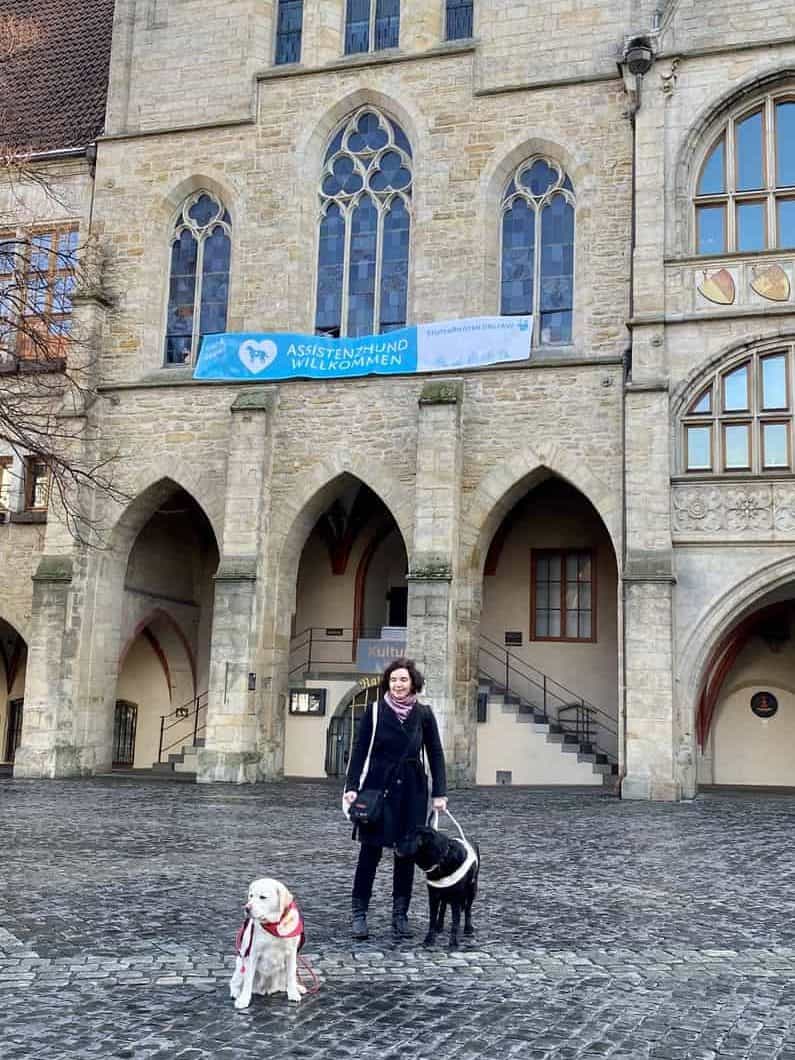How a small city inspired us with its cosmopolitanism and heartfelt pragmatism
An article by Manja Maserati
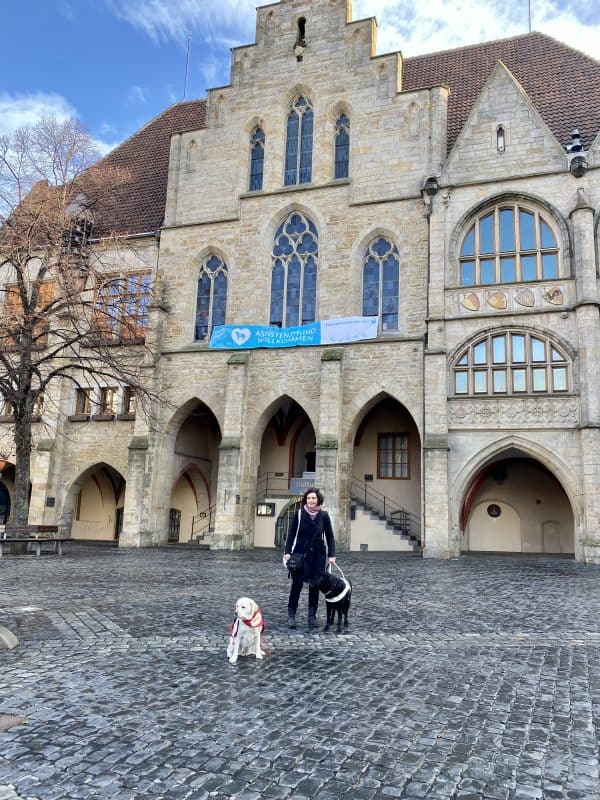
On 21 Jan. 2021 at 12.30 p.m. Hildesheim officially declared itself assistance dog friendly. For this, a press conference has been scheduled at the town hall. At the old town hall, the Pfotenpiloten banner “Assistance Dog Welcome” greets us from a prominent height. “Wow,” I stammer, robbed of proper speech.
But first things first. Before I tell you more about our Hildesheim campaign “Assistance Dog Friendly Municipality”, take a look at what Radio Tonkuhle (tonkuhle.de) has written about it. Presenter Sabine Kuse not only invited us into the studio, but also accompanied us on our excursions. Thank you for educating people about this!
On the first evening, we had an appointment with Ulrike Dammann, Inclusion Officer and member of the staff of the Office for Migration and Inclusion in Hildesheim. In the meantime, we have experienced how crucial it is that these positions are filled with people who can carry others along and inspire them, with people who take the topic of disability out of the pitying helper’s corner and focus on participation as a matter of course. That Mrs Dammann is clearly such a person was clear to us even before we arrived.
On the first evening in the Miara, an inclusive restaurant with excellent cuisine and great hospitality, the assistance dogs Daika and Mascha, who are waiting for their dinner (Labradors are notoriously prone to starvation), have to urge us to leave, so captivated were we by the conversation. We were amazed at great projects such as KulTouren and the bubbling desire to simply get something going.
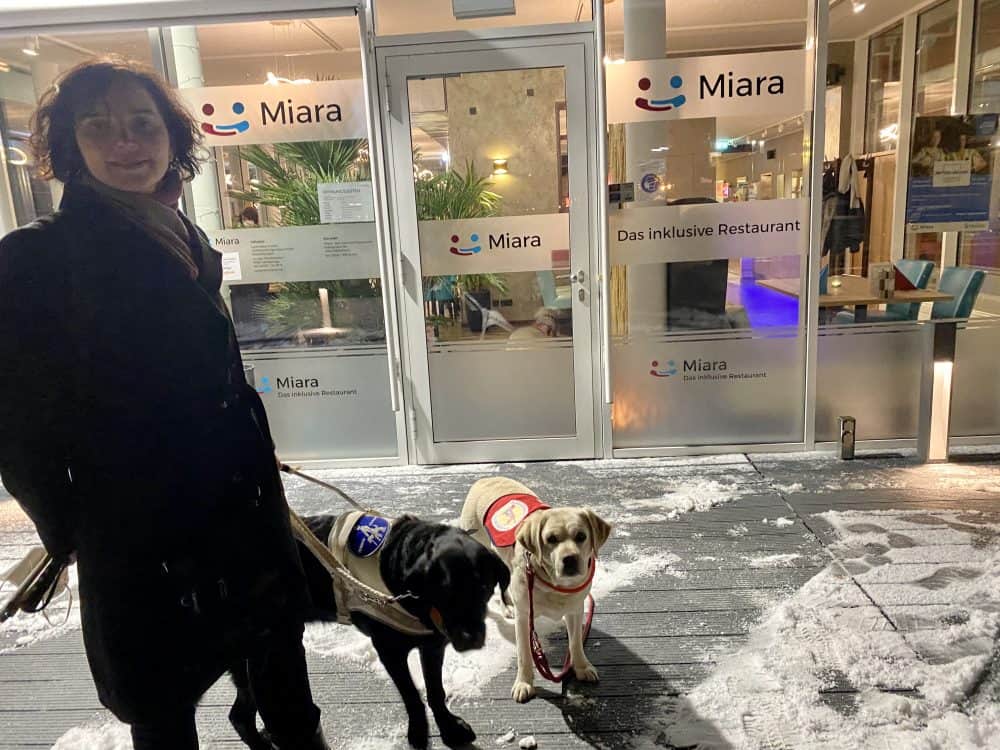
When Ms Dammann heard about the access campaign, there was no question at all about tackling access rights for assistance dog teams. But Ms Dammann wanted to know in more detail whether there were teams in Hildesheim, where the future assistance dogs were trained in the region, whether there were already access problems. She contacted trainers, asked the tax office and sought dialogue with us. And it was immediately clear to her that tourism would also have to be brought on board. With the cathedral and St. Michael’s Church, Hildesheim not only has world cultural heritage to offer, but also museums and cultural sites with great offers for people with and without impairments.
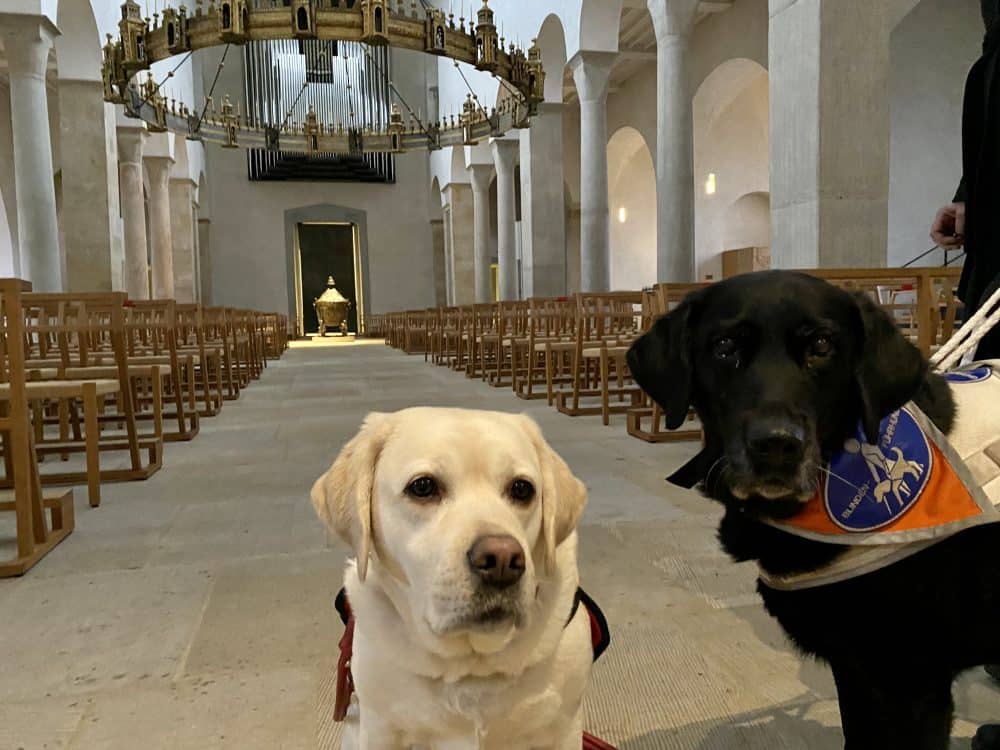
Hildesheim was badly destroyed in the Second World War. But some things were rebuilt so true to the original that the cathedral and St. Michael’s Church are World Heritage Sites. The Cathedral Museum supports the access campaign and is still discussing challenging topics with us. And then we cast an eye on the 1000-year-old rose bush and the cathedral treasure. And of course we won’t miss the cathedral. By the way, both are also easily accessible with a wheelchair.
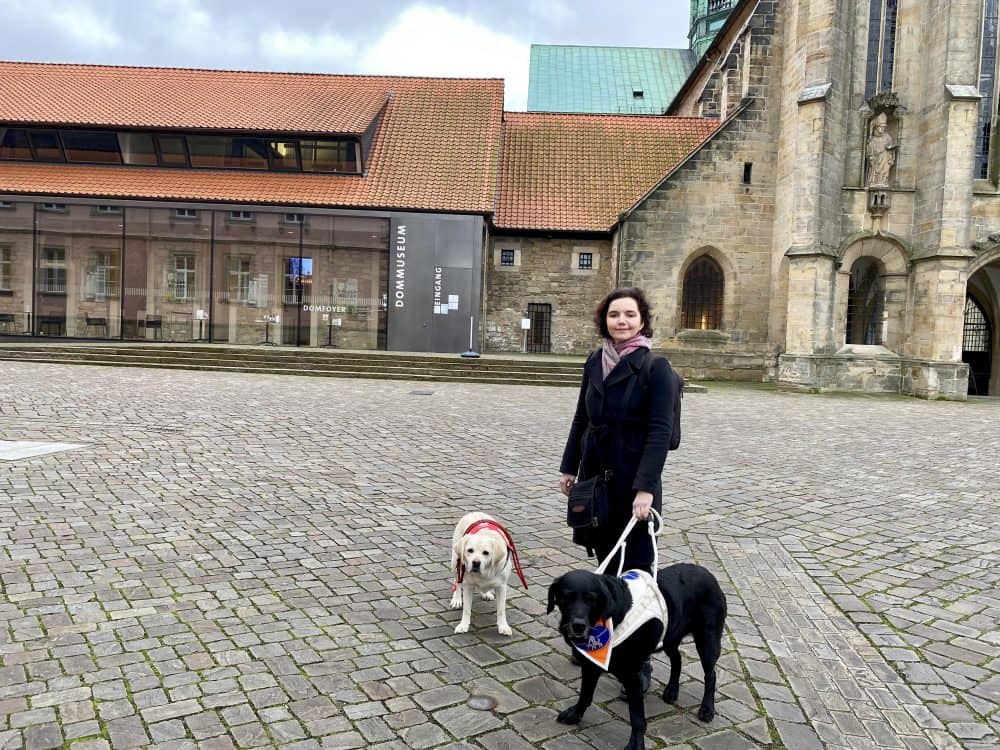
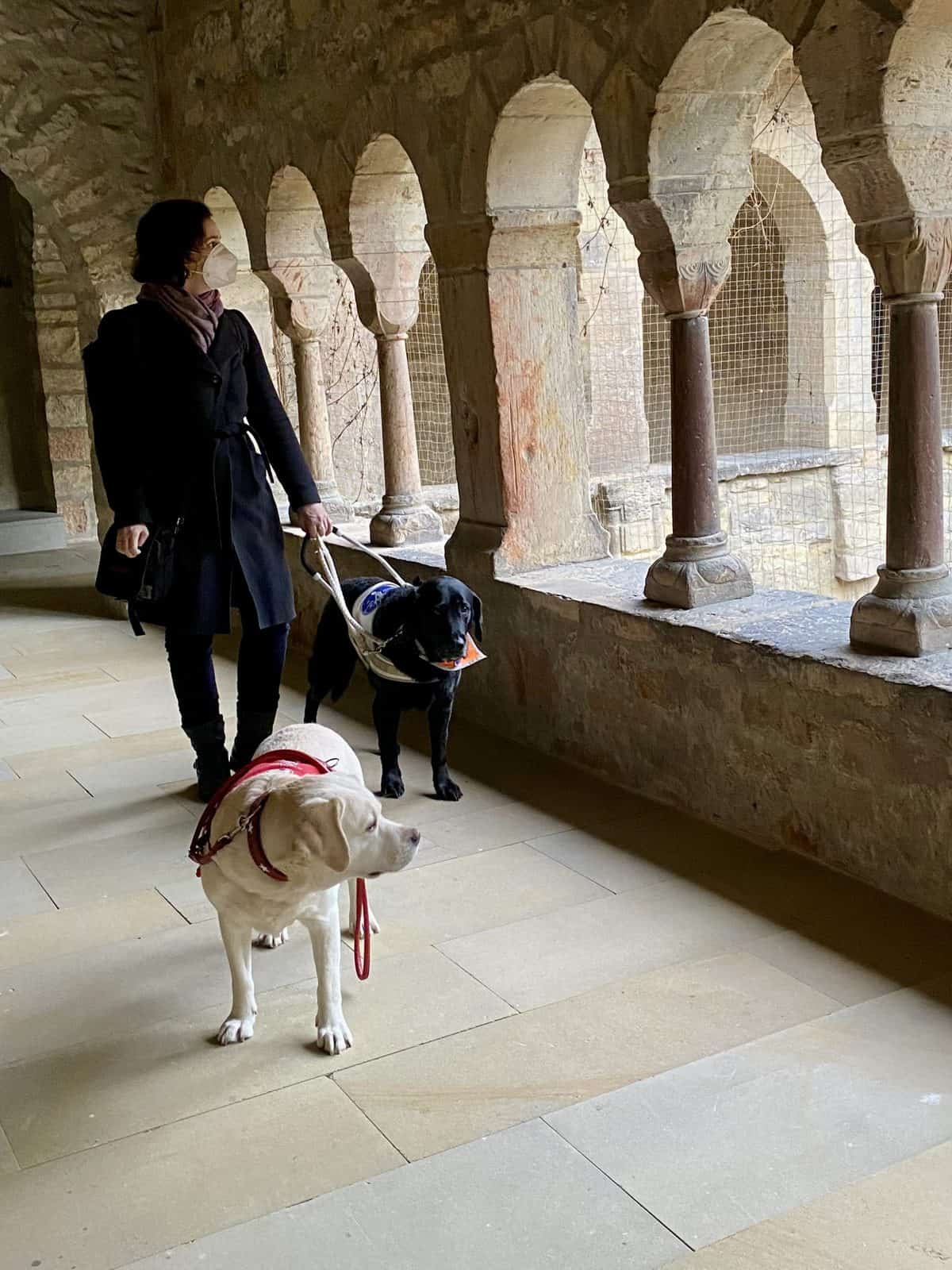
A pleasant surprise awaits us at the Theatre for Lower Saxony, or TfN for short. In the presence of the marketing manager, Mr Rack, the artistic director, Mr Graf, explains to us and the editor of Radio Tonkuhle that there is a separate office in the theatre that is entrusted with all tasks related to inclusion. And he says something that we also remark on again and again when we are striving for mutual understanding.
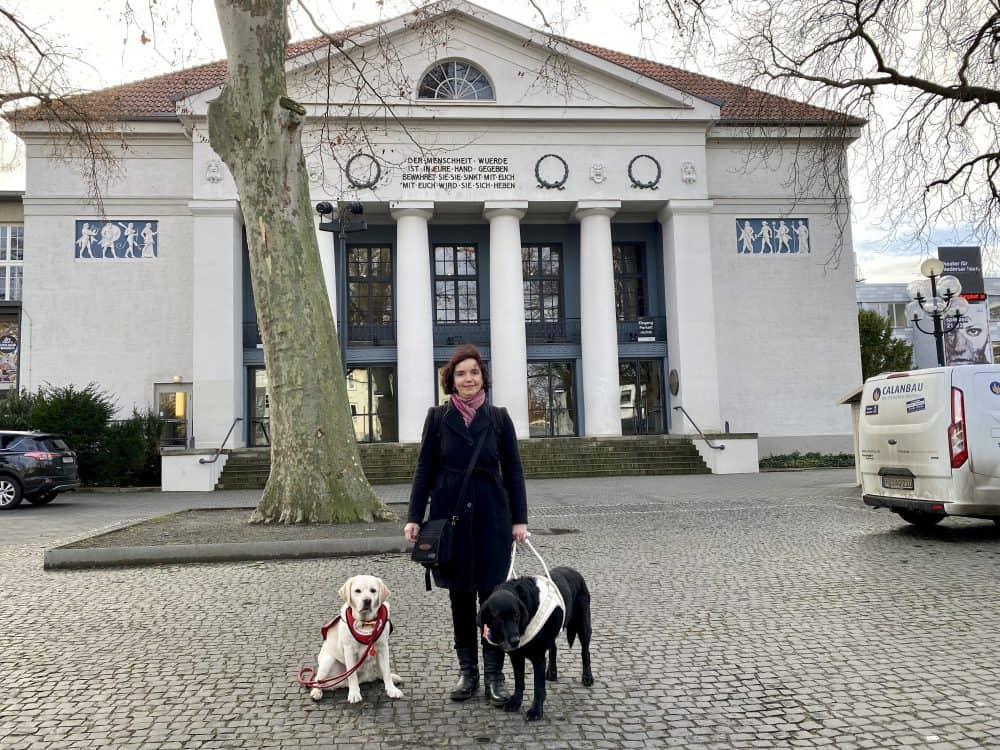
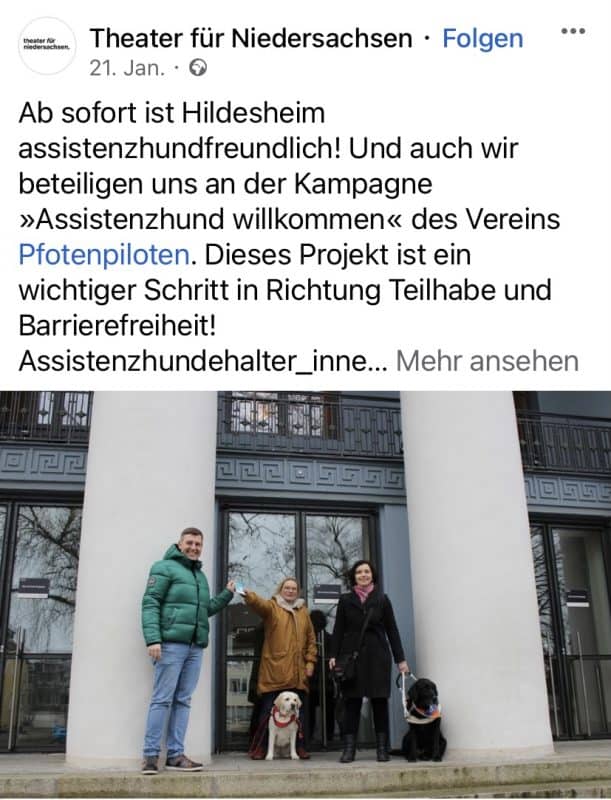
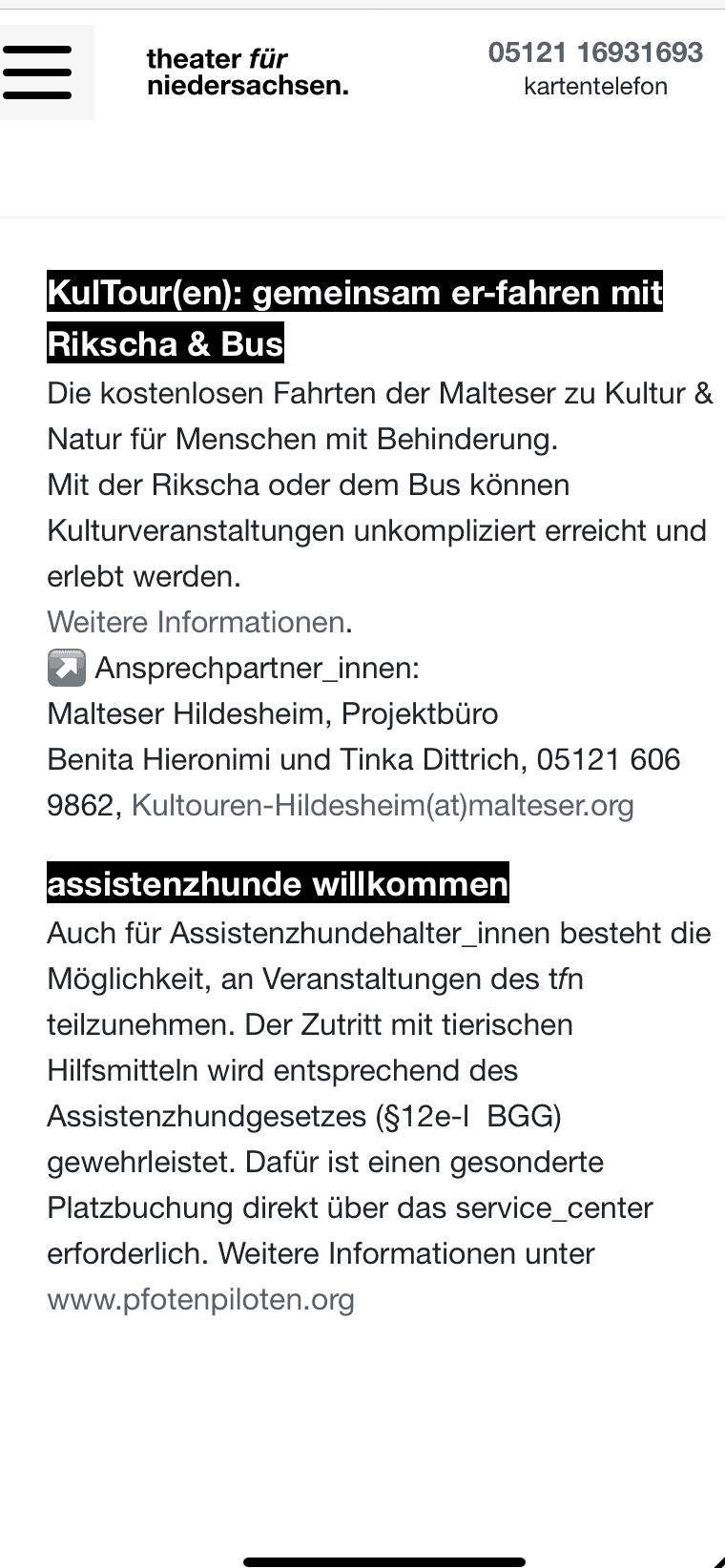
She said it was important to set out and remove barriers where possible, but that complete accessibility would often not be possible. There are sometimes structural limits, sometimes technical limits. You have to stay engaged in a dialogue and also understand some things as a path that you have to follow at different speeds. Assistance dogs are welcome at the TfN. Please register in advance, as there are certain places available for this, which are then not sold. By the way, there are also performances with sign language interpreters or descriptions in easy language.
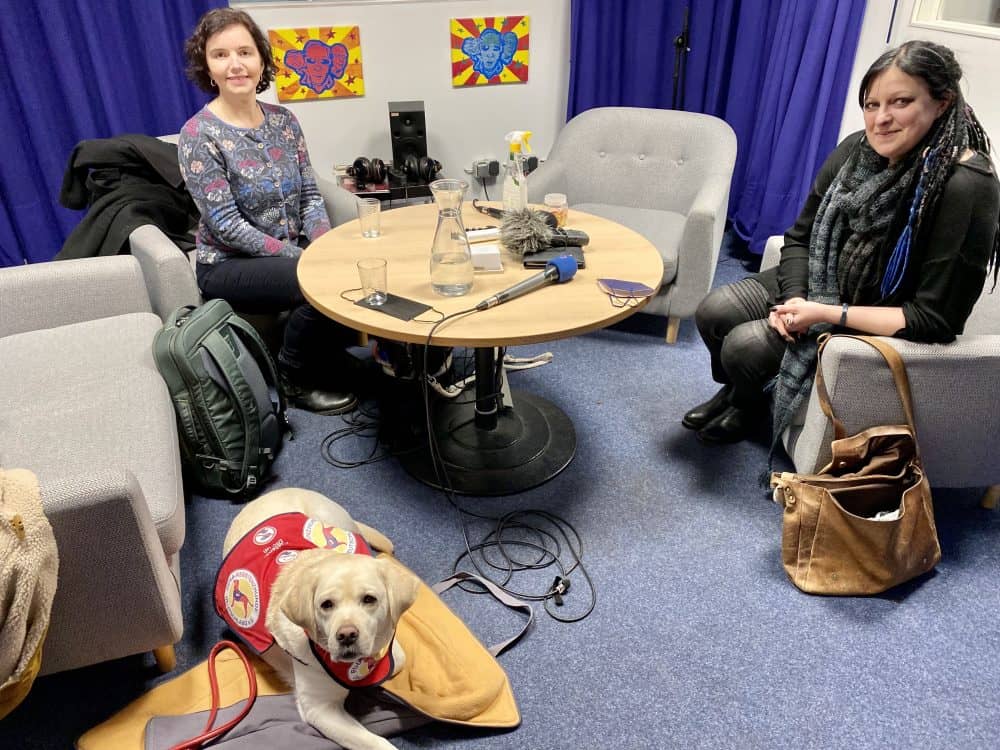
Sabine Kuse, from Radio Tonkuhle takes us from theatre to radio station. We make ourselves comfortable in the armchairs and try to think and speak in complete sentences in the midday slump. Ms Kuse keeps us on our toes with her sympathetic way of asking questions and promises to cut what we get confused about. Sometimes we forget about the recording, we chat… sometimes we get off topic.
But maybe that’s a good thing and exactly what makes good moderators. Ms Kuse wants to do a one-hour programme on the topic of assistance dogs. We are totally happy. The more people know about it, the easier it becomes. Doctor’s appointments with assistance dogs are still a gamble. Every human assistance dog team knows situations that make you despair because access to medical care with an assistance dog is denied.
It is our intention to seek contact with medical institutions in municipalities that are becoming assistance dog friendly. The law is one thing. Often, however, it also needs a conversation in which open questions can be clarified. This requires space and the certainty that people want to understand each other and not just exchange facts for the record. And sometimes we also take an important homework assignment with us. In Hildesheim, two out of three hospitals open their doors. At the Helios Clinic, Mr Münkel, the press officer, immediately takes action and places the sticker “Assistance dog welcome” right next to the no-dog sign. May many Helios clinics follow this example.
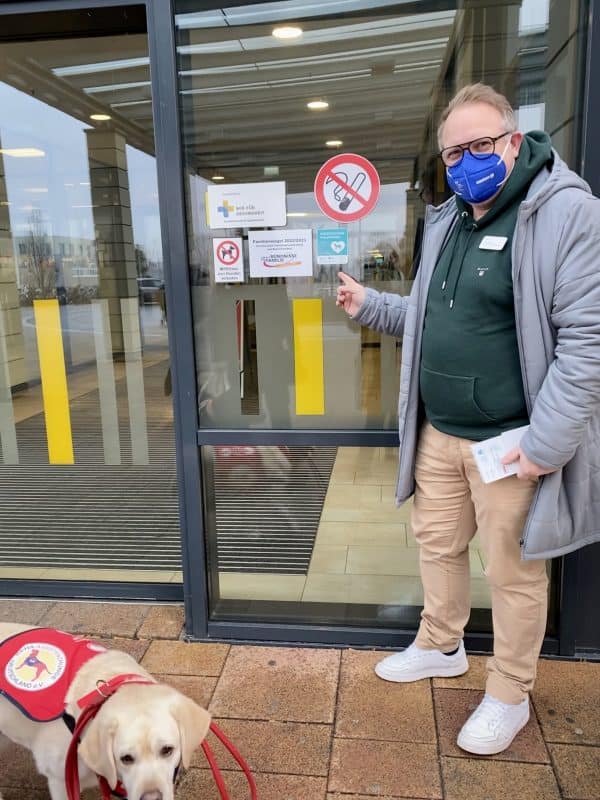
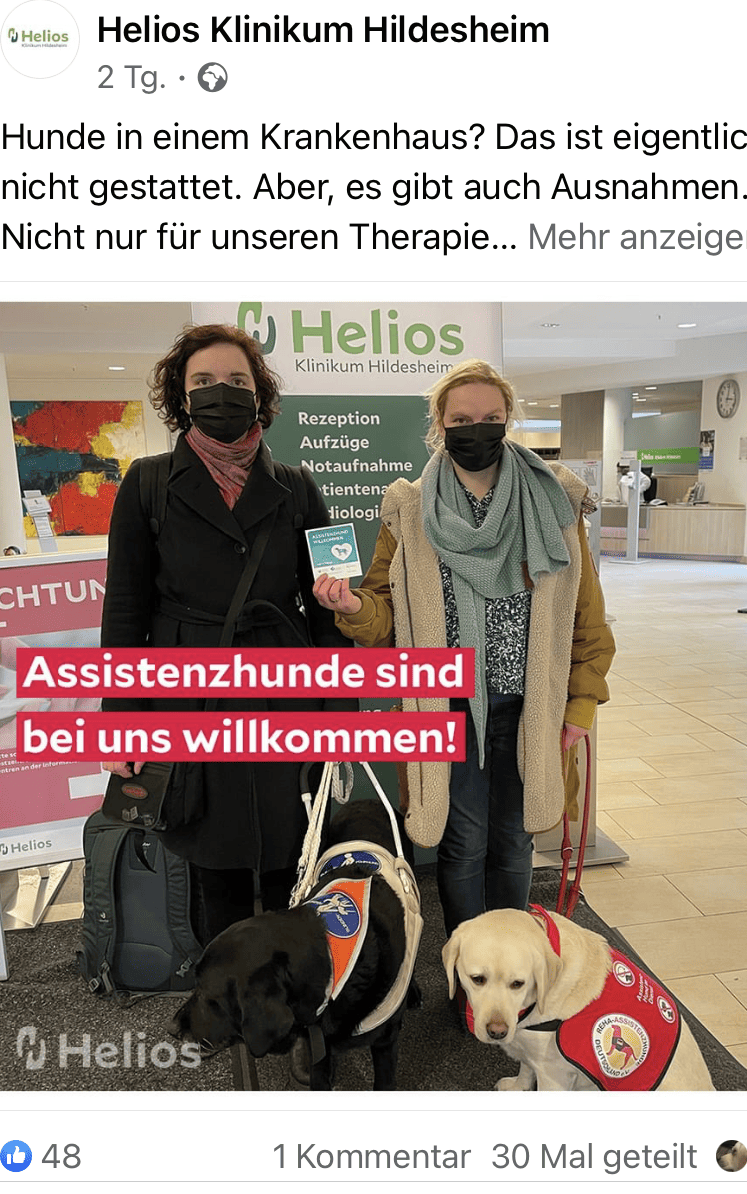
At the St. Bernward Hospital we have a good conversation with the head of the nursing service Mrs. Börner and the press officer Mrs. Seiffert. We go through possible scenarios and it is noticeable how carefully the clinic thinks things through. What about the assistance dog if his team partner’s health suddenly deteriorates or if he is already admitted in such an ill state that he can no longer take care of his assistance dog. We explain that every assistance dog owner should actually have two emergency contacts for their dog and where to find them in case they become unresponsive. And then it strikes us that this is really quite important for a hospital. The hospital staff realise that such a dog does not belong in a shelter, but that they need a reliable solution. We can understand that very well. Thank you for addressing this so concretely. Therefore, we would like to ask all teams to carry the emergency contacts of their dogs visibly on the dog (identification blanket, collar, e.g. in a small bag for dog tags) and/or on the leash. You help your assistance dog in an emergency and relieve the hospital staff.
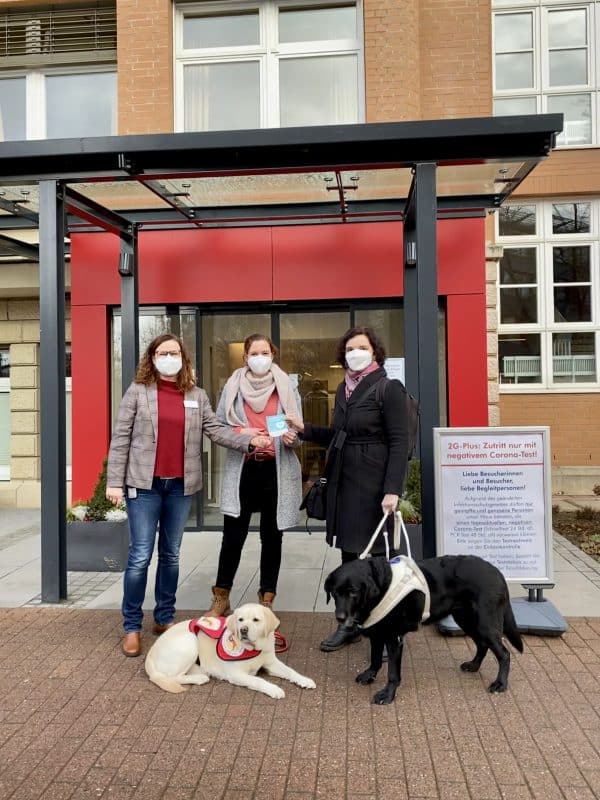
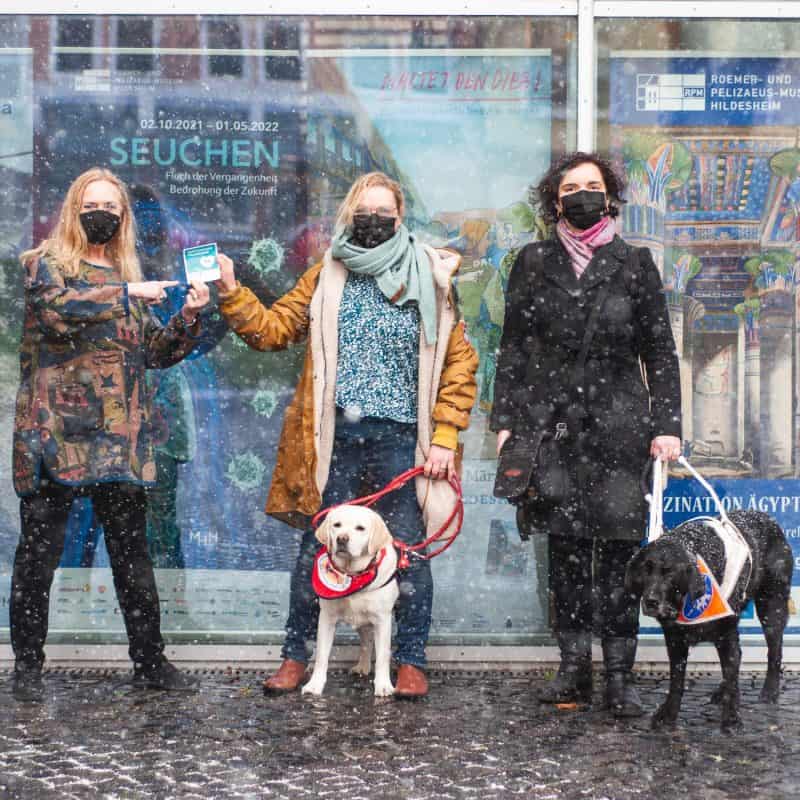
Unfortunately, we only have enough time for one museum. Then off to the Roemer and Pelizaeus Museum. If anyone else here asks who Pelizaeus was, we can help them. Wilhelm Pelizaeus was a successful merchant and consul in Egypt and donated his Egyptian collection to the city of Hildesheim. The museum is not only home to an Egyptian collection, but also to current exhibitions. At present, it is worth visiting the exhibition “Seuchen” (epidemics) or the photo exhibition “Now you see me Moria”. Incidentally, we are also surprised by a self-evident lack of barriers here. For the blind and vision impaired, there is handrail labelling and signage in Braille. There are guided tours for people with hearing and vision impairments and tours in simple language. We have an appointment with Prof. Schulz, the director, and the marketing manager, Mr Riebsamen.
In a snowstorm we hand over the sticker in front of the door and urgently need a hot drink in the museum café’. Although Daika and Masha take up a lot of space, we are served in a friendly manner. In the Luxor shop we buy another plush virus (thematically assigned to the epidemic exhibition) and meet an extremely patient employee who trusts us completely in view of the wagging rods at display height. And while Hannah reconsiders the viral colour choice, I notice that no one has been unfriendly all day.
It sounds so pleasantly self-evident that if dogs are strictly prohibited, assistance dogs are of course welcome. And we quickly realise that the biggest challenge of such friendly people is not to pet our animal assistants.
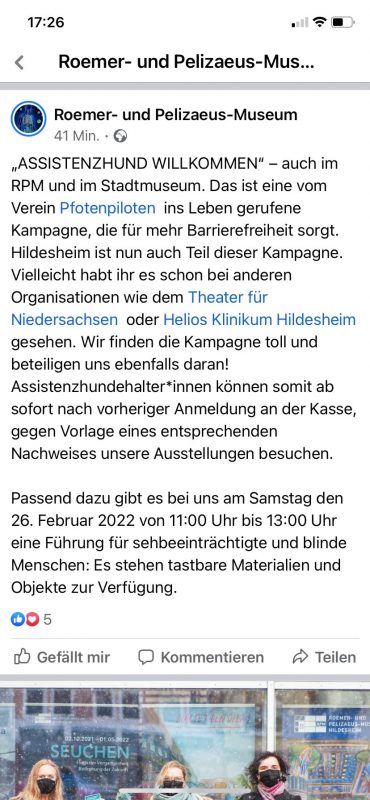
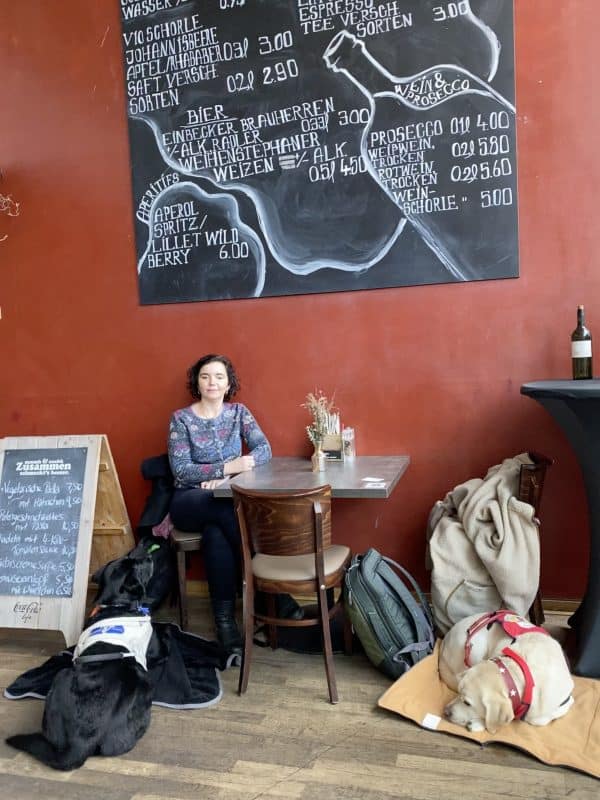
Back to the press conference. We go together into the big hall. Not only the press showed up and the radio, but also representatives of Hildesheim politics, tourism and retail. There is an official press release. We answer questions.
I’m reflecting on the last few days for myself. Our Hotel Stadtresidenz, which proved to be assistance dog friendly through and through, had such thoughtful staff that we were able to cope well with our limitations in everyday life. We were helped with our luggage, of course, and our assistance dogs stayed overnight free of charge and were allowed into the breakfast room despite the ban on dogs.
The friendly staff member with the fear of dogs bravely came to our table and trusted us when we said that Daika and Mascha would lie very still, even if she came closer. On the day of departure, the sticker “Assistance Dog Welcome” was stuck on the entrance door. At the Rewemarkt Gravelottestraße 1 they were patient with our double team, which of course took up space. Not a single employee was unfriendly. At the checkout, they asked very tentatively if they could take a photo. The test centre at the theatre remained calm as we filled the small room. The Schuler coffee roastery, which has a no dogs sign on the door, let us in immediately after an explanation and asked with interest. And a staff member even came after us when we were running in the wrong direction. Days full of friendly people. Although some had never heard of assistance dogs, they did not turn us away but asked politely.
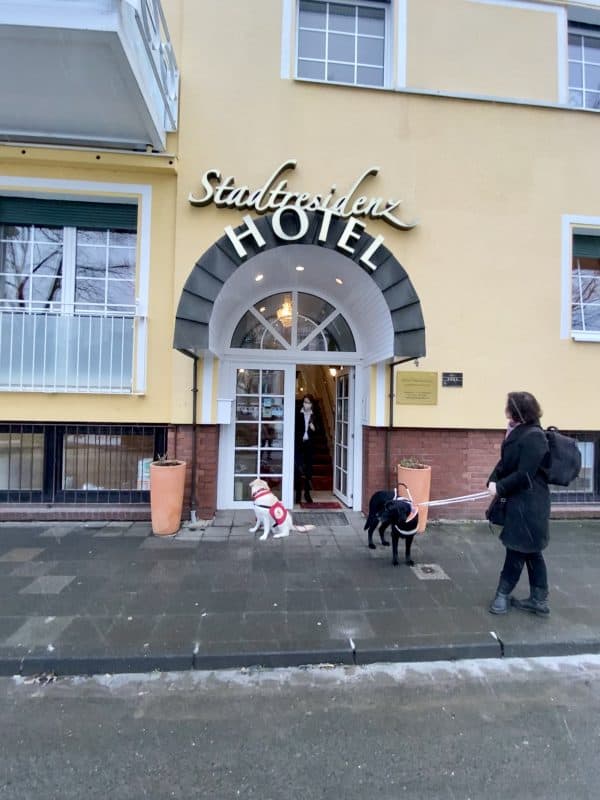
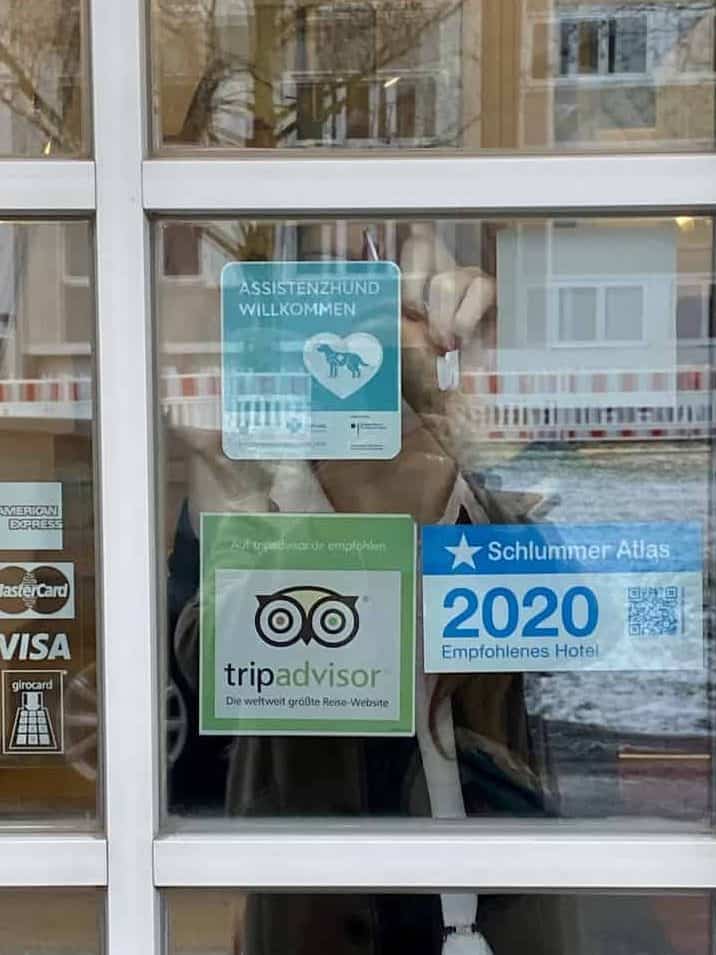
The press conference ends with a photo opportunity at the door of the new city hall. The sticker finds its place. And since we are already there, we all go over to the tourist information. We are happy and exhausted from these past few days. The two canis perfecti (they didn’t get the title from us, but we silently agree) pose one last time for an important mission.
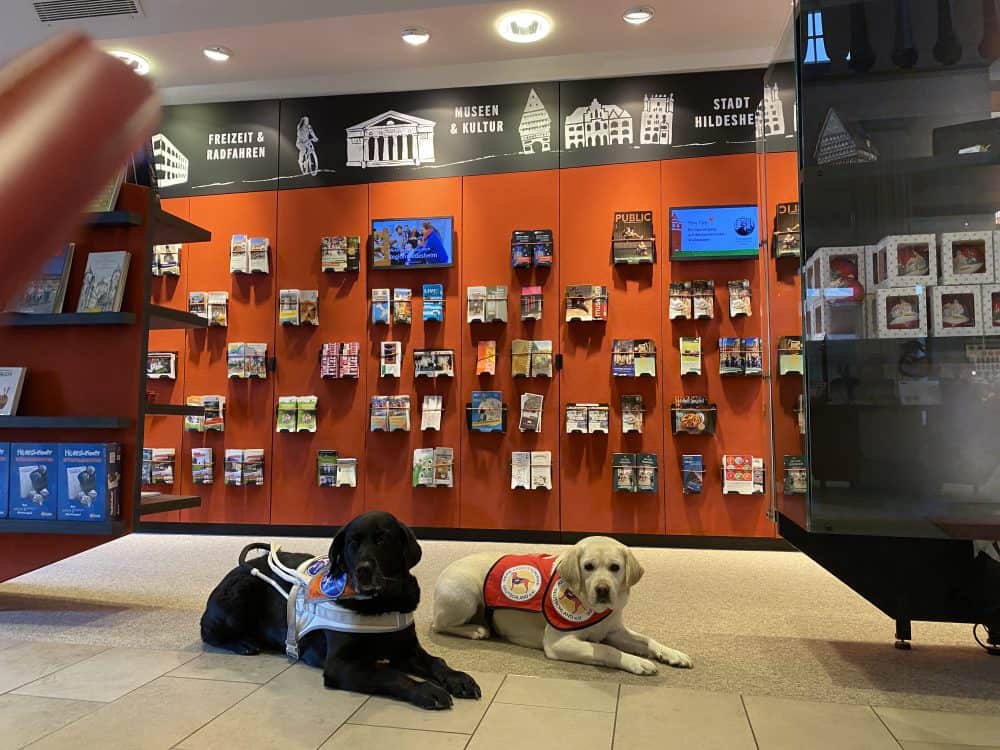
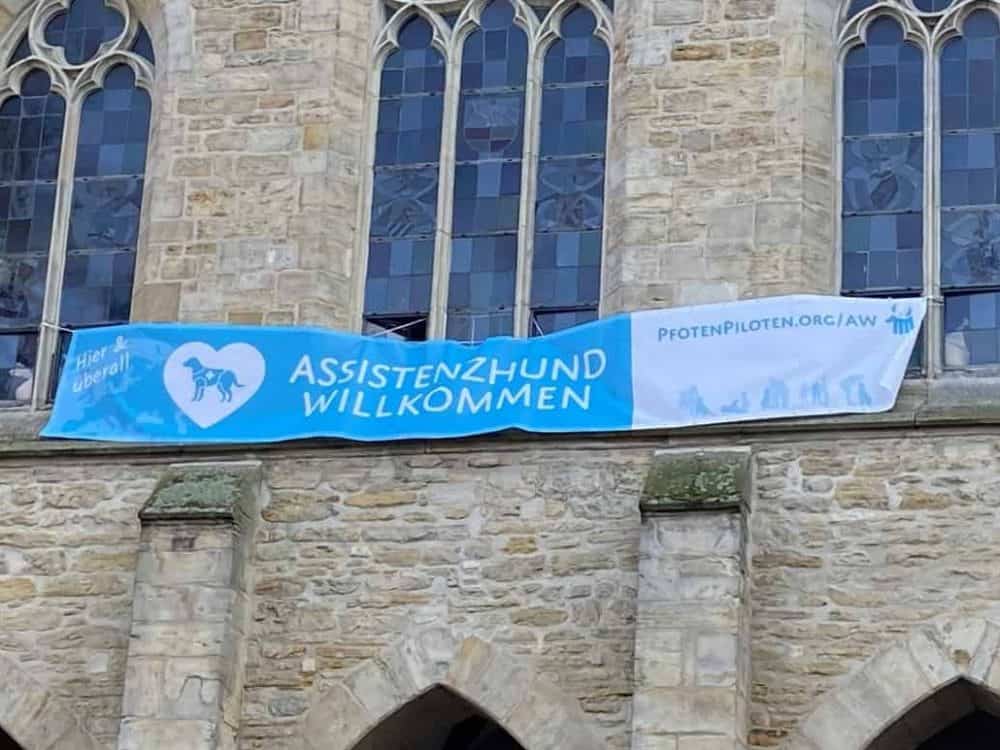
Mrs Dammann accompanies us on our way to the car. We meet people who have seen the banner and ask about it. We experience an inclusion officer who is very close to the residents of the city. I take one last look up to the town hall, to where the banner hangs and spreads the word. And then I think: “You’ve placed it in the right place, dear Hildesheim. This is how we have experienced you in the past few days. That is completely authentic, tolerant and friendly. A welcoming city. We’ll tell others and will be happy to come back.”
The “Assistance Dog Welcome” campaign was made possible by funding from the Federal Ministry of Labour and Social Affairs (BMAS) and the Aktion Mensch.
